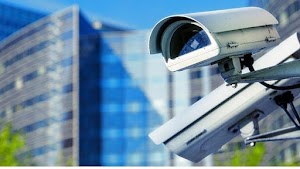With over 22 years of experience installing security cameras for businesses in Tampa, St. Pete, Clearwater and surrounding areas, Surveillance Technology has learned that some security camera companies leave out details. When this happens, it can be frustrating to clients because installation jobs may take longer to complete, equipment may not work exactly as expected, or quality of surveillance footage may be lacking.
If you’re considering a security camera installation at your business, make sure the companies bidding for your job are answering these questions.
Can I verify your license online?
Any security camera installation business in the state of Florida should be verifiable online at https://dos.myflorida.com/sunbiz/search/. If the company is not able to be verified, you’ll know you need to look elsewhere.
Do you carry full General Liability and Workman’s Comp Insurance?
Any security camera installation business should carry full General Liability Insurance and Workman’s Comp Insurance to protect themselves and their employees. If you’re thinking of hiring a company, you should request to be added as a certificate holder to both their General Liability and Workman’s Comp policies to protect your own company’s liability.
Are your security camera installers licensed?
At a minimum, all surveillance and security camera installation companies must have at least a low voltage license. Surveillance Technology has a full electrical contractors (EC) license, which is far superior to the minimum requirement of a low voltage license.
Are any of your security camera installers subcontractors?
Surveillance Technology does not use subcontractors for installation work, but some companies do. At times, subcontractors may be able to complete the installation work themselves, but other times they may not, which can delay your job completion. For example, if a subcontractor is hired to come in and only complete the cabling required, then a company employee has to follow up in a second visit to install and configure the remaining equipment. This can be frustrating for businesses who need to shut down an area of their business or have extra staff on hand for supervision during installs.
Who will oversee my project and ensure your employees and/or subcontractors will arrive on time, be respectful and clean up properly at my location?
It’s important to know who from the security camera installation company will be responsible for the workers installing your equipment at your place of business. If the company is using subcontractors, you don’t want to find out days later that the subcontractor didn’t complete his work, was rude to your staff and/or left a mess for someone to clean up. Having the name of the person responsible for your account and its successful installation will ensure the work is done properly and in a timely manner.
Have you run background checks on all of your employees and/or subcontractors? Do you provide copies to clients upon request? Do you allow clients to run their own background checks?
When dealing with a professional security camera installation company, background checks will have been completed on all employees and/or subcontractors. Surveillance is a sensitive industry and, depending on your line of business, you may even need to run your own background checks on all vendors. Asking this question up front will ensure the company you’re working with knows their employees would pass with flying colors.
What sort of internet speed do I need, and do you evaluate my current network cabling to ensure it meets requirements?
Internet speeds are important for viewing security cameras remotely. What is most important is the upload speed because the DVR will feed the video stream out to the internet. You want a business internet company that can offer symmetrical speeds for both upload and download. Asking this question up front will uncover whether you need to contact your local internet provider for more details, or to upgrade your services.
Do you evaluate my current equipment to ensure it is compatible with what you’re installing and that I’ll be able to take advantage of all of my new equipment’s features?
It’s important to know if your current equipment, which may be older, will be compatible with anything new you are installing. For example, most modern DVR’s are hybrids that can accommodate multiple technologies and resolutions, including older analog cameras.
If considering IP cameras with NVR’s, however, there is less flexibility. Older cameras must be ONVIF compliant in order to work with a modern NVR. In some cases, even if they are ONVIF compliant, you still may lose some of the richer features like the ability to record via motion trigger.
Your security camera installation company should be able to evaluate your current equipment and advise if anything will not be compatible or if certain features will not be available with your current setup.












